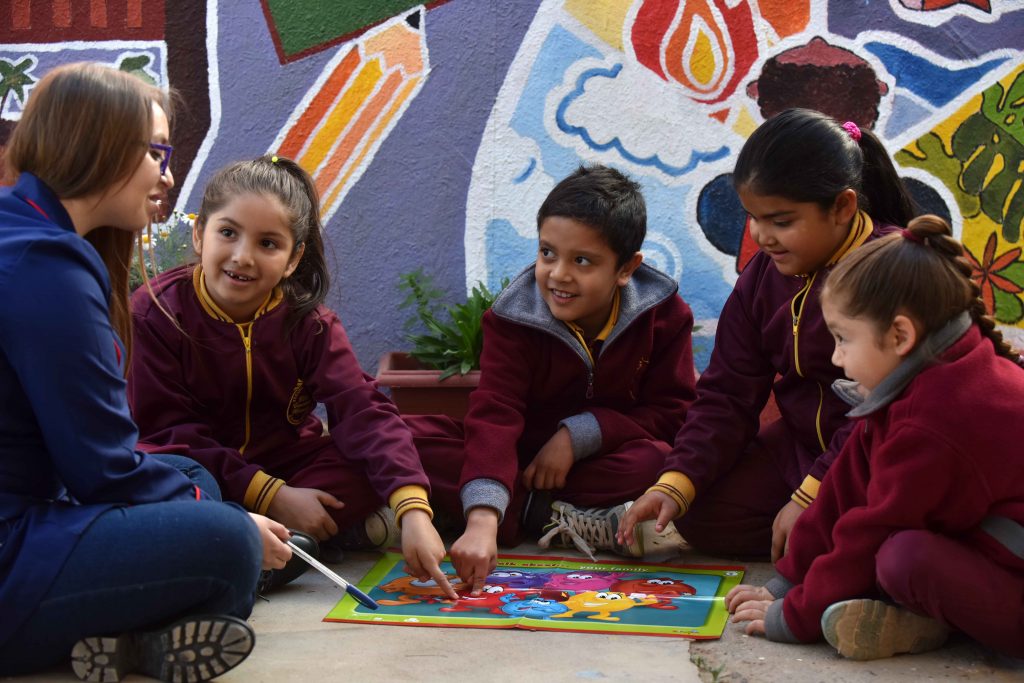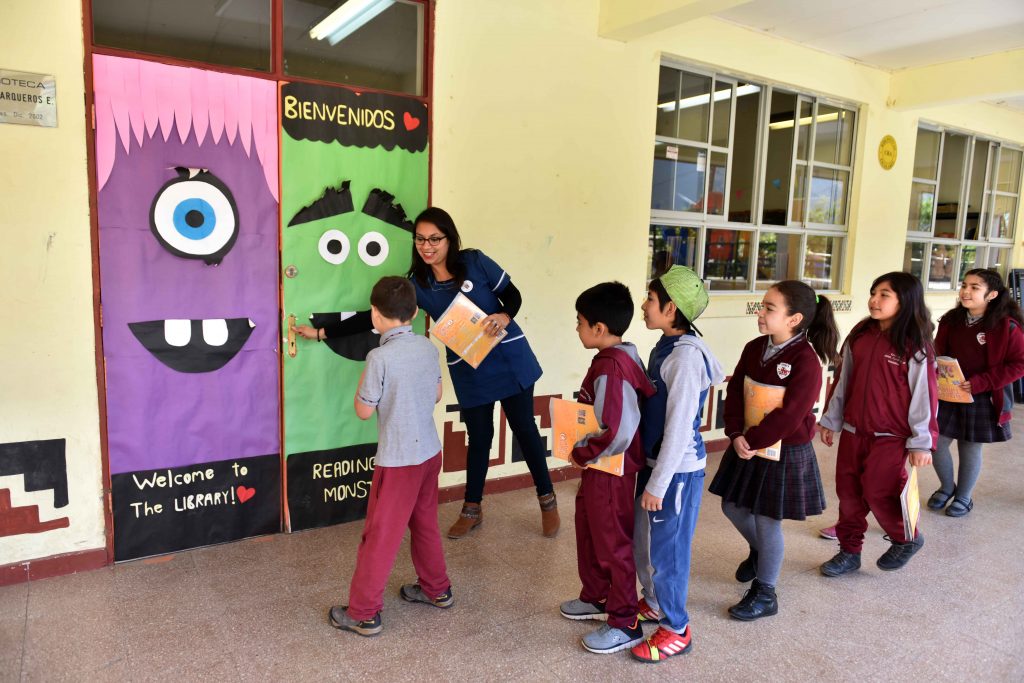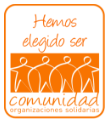In response to the health crisis and the problems of connectivity and internet access in Vicuña, which according to figures from the mayor's office is around 30% of households, the municipality, together with the work of the Municipal Education Department and twenty directors and teachers from the city's public schools, have launched Profesores Online, an initiative that enables the transmission of recorded classes of different subjects and levels, through the ElquinaTV channel and the social networks of the television signal, with the aim of having a positive impact on learning and reconnecting with the academic process, but also on the emotions of the students of the commune.

The principal of the Edmundo Vidal Cárdenas School, Ruperto Pizarro, participated with three other teachers from his school in Profesores Online and says the experience was enriching. For the area, he says, the confinement and lack of technological resources has been difficult to address. "The children in this locality are very skin deep, very close to each other, and the schools become their second home. There are their cousins, their friends, and losing that connection has deeply affected their emotions. The aspect we will have to work on once we return will be the emotional, rather than the academic.
Cynthia Aránguiz is an English teacher at Juan Torres Martínez School and her classes have also been broadcast on the television channel and its online platforms. The eighth grade of which she is head teacher has fifteen students and only seven have internet at home: "We don't have the possibility to do online classes because of connectivity, but also because of the lack of equipment in families, where often the mobile phone of one of the parents has to be shared by all the siblings".
On this point, Ruperto Pizarro notes: "The biggest difficulty is the connection. It's because of the area, because we've seen students at the top of the hill trying to connect with their computers or phones. But one positive thing about this crisis has been that the installation of fibre optics has been accelerated".
"The first days for my school were very anxious, accentuated by the loss of physical contact. says teacher Cynthia Aránguiz. "In the case of teaching English, that closeness is essential, it's what you get the most out of in the classroom: in the room they can see your pronunciation and you can see how they express themselves. That was disconnected and we had to learn new processes as we went along".
Gabriel Pastén, head of the DAEM, explains that in Vicuña there is a heterogeneity of cases and realities, which is why the city's educational community has found it necessary to resort to different initiatives and tools to continue the educational process in schools: "We serve a community that belongs to the middle and low socioeconomic group, where technological resources are not abundant, considering that in Chile only 18% of children have the optimal conditions to receive distance education, i.e. internet and a computer for exclusive use.

He adds: "That first moment, when we found out about the suspension of face-to-face classes, was strong and very confusing. The first thing the Ministry of Education did was to make the different alternative platforms available to schools and their communities. But the question was immediate: what is the number of children who will benefit from this implementation, which necessarily requires the internet? We started to investigate and realised that there were as many realities as there were children in the schools".
Faced with the impossibility of reaching the majority through a videoconferencing platform, the schools in Vicuña began to plan their weekly activities by distributing work guides, complementing them with the use of social networks, especially to provide feedback to the students and also within the school teams.
"This completely changed our structure. Many of us teachers still don't have a good grasp of social media, or platforms like Zoom or Meet, which has also meant the challenge of studying and updating ourselves quickly and, in the process, doing new things".says Ruperto Pizarro. "The important thing is that we had a quick reaction. We immediately prepared material for a month based on the curricula, and on 17 March the parents were going to pick up the work guides. It was very useful for us to have advance planning.
Cynthia Aránguiz warns that, especially because of the surprise, it was difficult to rethink the way in which teachers should share their knowledge at a distance with their students. In her case, although communication with the school's teams was fluid and constant, at the beginning the work was more isolated and linked virtual and physical tools, prioritising the emotions of her classes and not overloading them with information, but synthesising the content so as not to interrupt the development of the four skills that English contemplates: "At the beginning, both in the classes I designed for my courses and the ones I later had to record, I focused on reading and writing, through the texts and the downloadable material I sent them. With my students, the next stage was to focus on oral expression, and WhatsApp has also played an important role here, with the sending of audios".
The great strength during this crisis has been the commitment of teachers, says Gabriel Pastén: "Commendable. You have to take your hat off to them because they have created countless strategies to reach their students: from those who leave the material at home to those who agree to record their classes and share them with the students".
A reflection of this commitment has been the implementation of Profesores Online, an idea that came from the Mineduc, says Gabriel Pastén, and which the DAEM has coordinated with the different teams in the schools: "Our objective has been to reach the children through a technological way, because learning with these tools is precisely what attracts them most. To positively impact their learning, the DAEM has set up a Technical Unit that is fully dedicated to coordinating the work with the teaching teams, informing them about platform updates and inviting them to conferences that are being developed so they can update their knowledge".
The first classes recorded by the teachers lasted 40 minutes, were broadcast on ElquinaTV and then posted on the channel's Facebook page. Later, the DAEM came up with the idea of broadcasting them live on the social network, in order to get immediate feedback from the children. The teacher Cynthia Aránguiz agreed, despite the implications of doing the class live without editing, and suggested that another teacher who participates in We Learn, Francisca Guajardo, be included in the recording: "Why? Because the subject needs communication, question and answer, a dialogue. The idea was not to make it an expository class, that's what we wanted for the first cycle. And our success was tremendous: more children than we expected were able to connect".she explains.
This initiative is part of the document "Educational Communities: 6 stories of innovation in times of pandemic" which you can download in full at this link https://bit.ly/2DGXlJ6





